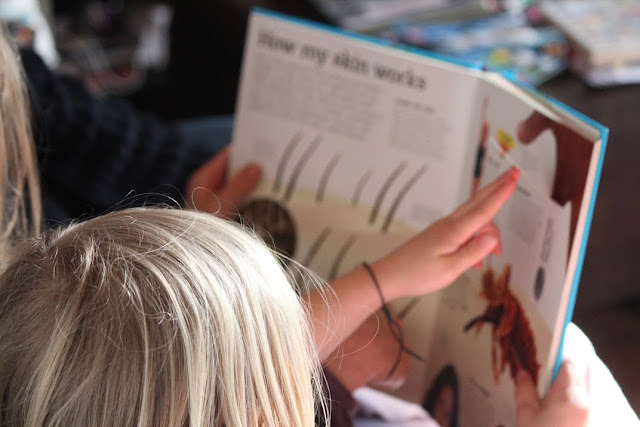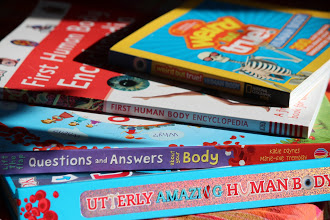Experiment, experiment, experiment!
Nothing beats getting your hands dirty and trying things out for yourself. Experiments really do make science fun. Kids really love anything that involves measuring, pouring, mixing, watching. It's even better if they get to make a mess. So whatever scientific concept we're trying to get our heads around, I usually begin my preparation by using the internet to research any relevant experiments we can do at home. There are an awful lot of great resources out there. I'll be blogging soon about some of the specific experiments we've been doing and linking to the places we've used then. |
| Maya has fun with Oobleck |
Find the best documentaries.
As home educators we watch a lot of documentaries. They make science fun by bringing it alive whether it be through amazing and ground breaking footage or by telling the life stories of some of our greatest minds. Great scientific discoveries often make great stories too and it's inspiring for kids to see the real people behind the science.Although screen time can be seen as passive, it can also be active and creative. For us this means, trying to watch together rather than using this time as babysitting. It also means asking the children what they think about what they've seen and drawing connections between what we watch and what we're learning elsewhere. I can't say it enough, great documentaries can be really inspiring. In science terms we love everything with Physicist Brian Cox, his natural enthusiasm is infectious. We also love the French series C'est Pas Sorcier which really break things down in ways kids can get to grips with.
![Brian Cox By Bob Lee [CC BY 2.0 (http://creativecommons.org/licenses/by/2.0)], via Wikimedia Commons](https://blogger.googleusercontent.com/img/b/R29vZ2xl/AVvXsEgLE-BfpUfKZ_EC50Krf8uIiOxdRNOL1IzrqyN-FvasbpYdiinhfPWVqvTsx4sGWzxoi6OoML-lTqPGag8PRMDSYXX8bJOzcYwD0rn0v5x4oQse03d97ZWmdHiqD9Uvf-lMa23wdHVh39w/s400/Brian_Cox_at_Science_Foo_Camp_image2.jpg) |
| Photo by By Bob Lee |
Keep it hands on.
Although not everything can be explored through home experiments there are other ways to make science fun by keeping it hands on. Building models (like this one we made of the International Space Station) and making collages and drawings are all ways to keep kids engaged. Another approach to this can be trying things out physically. Maya and I recently had a blast trying out some sports activities to try and better understand the physics of Olympic Ice Skating. |
| Noah and his model International Space Station |
Make it relevant.
It's never easy to find the motivation to learn about something when it seems completely abstract or irrelevant. Experiments and hands on activities are great for bringing science to life but it also helps when the science you're working on can have some kind of link with everyday life. Recently we've used the Winter Olympics and all those sports as a springboard for learning about physics and biology. The kids have been so involved with and impressed by the athletes performances that they were pleased to learn more about just how they do it. |
| Learning about Athletes Bodies |
Books, books, books!
Finally, one last piece of advice would be to get your hands on the best and most interesting books you can. Children's factual books are amazing affairs of colour, fun and fascinating information these days. Editors are really pushing themselves to make science books really fun and interesting with pop ups, flaps, photography and humour. Check out this post I wrote about the best factual books on the human body to see what I mean. Then go and check out your local libraries, book stores, car boot sales and charity shops and see what treasure you and your kids can uncover. |
| Amazing Books about Human Bodies |

No comments:
Post a Comment